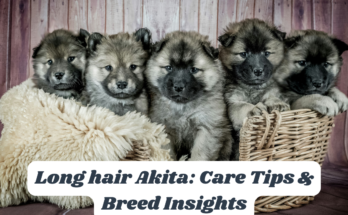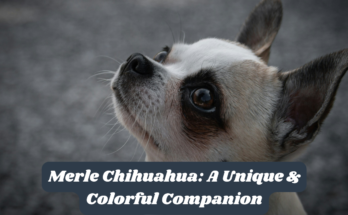Golden retrievers are one of the furthermost popular dog breeds in the United States for good reason they are intelligent, loyal, easy to train, and very demonstrative. “Goldens,” as they’re often called, make wonderful family dogs because they are great with young children and other pets while go out from puppyhood. Golden Retrievers have a broad head, short ears, deep chest, and muscular build.
Qualities of Golden Retrievers:
Height of Males: 56–61 cm (22–24 in)
Height of Females: 51–56 cm (20–22 in)
Weight: 25–34 kg (55–75 lb)
Coat: Flat or wavy double coat with good feathering, dense water-resistant undercoat
Colour: Any shade of gold or cream
Litter size: 7.2±2.7 [1]: 4
Life span: 12–13 years
Caring for a Golden Retriever:
Golden Retrievers are well-known for their thick, water-repellent, lustrous golden coats. Golden fur cans variety in color, white Golden Retrievers to red Golden Retrievers. Golden Retrievers have a double coat. Golden Retriever has a thick undercoat of short hair enclosed by a layer of longer hair. Due to this double coat, Golden Retrievers shed a lot. They also incline to grow matted hair overdue their ears and on their hind limbs.
Golden Retriever Health Concerns:
Conversely, due to poor breeding, some Golden Retrievers might change a minority of health issues.
Hot Spots:
Due to their thick coats and love for swimming, Golden Retrievers are prone to evolving hot spots, contained areas of skin that are reddened and infected, greatest often with bacteria and yeast. Hot spots develop further often in warm, humid environments and subsequently swimming since moisture gets trapped near the skin. Moist skin causes uneasiness those indications to scratching, chewing, and licking. These behaviors then reason the normal microbes on the skin to multiply, and the skin develops reddened and infected. A hot spot frequently grows quickly and can lead to hair loss, redness, and moist skin that might ooze, crust, or develop thick scabs.
Atopic Dermatitis:
Atopic dermatitis is a provocative and tremendously itchy skin condition that Golden Retrievers are inclined to. It can be generated by environmental allergens (such as insects, fleas, pollen, dust mites, or mold) or by a food allergy, habitually to the protein in the diet. Goldens are supposed to have a genetic susceptibility. Signs generally develop among 2–6 years of age, so consistent veterinary visits are important to monitor dog’s skin health. Golden Retrievers with atopy are continually scratching, chewing, or licking themselves. Self-trauma leads to hair loss, thickened skin that can be red or black in color, or a rash consisting of macules.
Hypothyroidism:
Hypothyroidism is an endocrine syndrome that occurs when the thyroid gland loses its ability to produce thyroid hormones, leading to symptoms such as:
- Mysterious weight gain
- Reduced energy level
- Recurrent skin and ear infections
- Thinning of the fur
- Dry, scaly skin
Golden Retrievers are inclined to hypothyroidism and characteristically develop signs when they are middle-aged. Though this endocrine disorder is collective, it can be well-managed with lifelong medication.
Hip and Elbow Dysplasia:

Hip dysplasia is an hereditary orthopedic condition anywhere the hip joint doesn’t properly align. This can cause pain and, over time, arthritis. Hip dysplasia can grow in one or both hip joints. Some Golden Retrievers are born with congenital hip dysplasia which is rare though others can develop this condition throughout their senior years. Symptoms comprise:
- Lameness
- Slowness to rise from a lying position
- “Bunny-hopping” gait when running
- Reluctance to run, jump, or go up or down stairs
- Holding the affected leg out to the side when sitting up
Trustworthy Golden Retriever breeders make sure their dogs are screened for this genetic condition, so it’s best to purchase a Golden Retriever puppy from a breeder that has had their dogs certified with a PennHIP evaluation. Hip dysplasia can be achieved with joint supplements and sure medications, but in serious cases, surgical involvement might be obligatory.
Elbow dysplasia encompasses several different inherited orthopedic conditions that eventually lead to degenerative joint disease (DJD) within the elbow.
Eye Conditions:
Golden Retrievers are prone to a few diverse eye conditions, including:
Pigmentary uveitis: An inherited eye condition wherever brown or black cysts develop on the eye. They are typically compassionate and grow when a Golden is at least 5 years old. Treatment typically includes eye or oral medications. Over time, pigmentary uveitis can source cataracts and glaucoma, which need spare treatment.
Progressive retinal atrophy (PRA): A disease where the eye’s retina slowly degenerates, foremost to blindness. There is no cure for PRA, but blind Golden Retrievers can still live long, happy lives with proper care.
Cancers:
Goldens can develop a few types of cancer as well. Some common cancers include:
Lymphoma/Lymphosarcoma: A type of cancer that creates in the lymph nodes and typically ranges to other organs. Lymph nodes that usually increase with lymphoma are on the neck, behind the knee, and inside the thigh. There is a comparatively high occurrence of this condition within the Golden Retriever breed.
Hemangiosarcoma (HSA): An aggressive form of cancer that greatest often originates in the spleen, liver, or heart in Golden Retrievers. This type of cancer forms blood-filled tumors that can disagreement at any time and reason a dog to bleed internally. A ruptured tumor can be life-threatening if not treated directly.
Heart Problems:
Subaortic valvular stenosis (SAS): is a genetic heart condition that Golden Retriever puppies inherit from their parents. It grows during the first year of life, so accountable breeding is important to ensuring prevention of this condition. SAS occurs when fibrous tissue slowly forms in the heart and reasons an obstruction of blood flow. Over time, this condition reasons the heart to stop functioning correctly, subsequent in heart damage.
Feed of Golden Retriever:
Golden Retriever puppies must be fed a large-breed, high-quality puppy formula until they are 1 year to 18 months old. Once they spread maturity, they will need to be transitioned to a large-breed, high-quality adult.
How to Feed a Golden Retriever:
Full-grown Golden Retrievers do well with twice-daily feedings, in the morning and evening. Golden Retriever puppies must to eat more frequently about three or four times each day on a consistent schedule. Golden Retrievers love to eat, so a slow feeder bowl can be a great way to help them slow down their eating and prevent digestion issues. If dog eats too quickly, it can reason vomiting and possibly bloat a spare situation where the stomach twists on itself.
How Much To Feed a Golden Retriever:
Golden Retriever puppies have a rapid growth spray, which means it’s significant to food them puppy food when they are less than a year old to deliver the extra calories that they essential to grow to their full potential. Once a Golden Retriever is 1 year old, transition them to a large-breed adult formula that has fewer calories to avoid unwanted weight gain.
Nutritional Tips for a Golden Retriever:
Starting a Golden Retriever on a joint supplement early in life can help slow down or possibly prevent arthritis. Another supplement to consider for a Golden Retriever is omega-3 fatty acid (fish oil). This assistance to decrease inflammation in the joints, makes the coat more lustrous, and protects the skin barrier from allergens in the environment. Particular good fish oil supplements are Nordic Naturals Omega-3 Pet, Vetoquinol Triglyceride Omega-3 Fatty Acids, and Nutramax Welactin Omega 3.
Behavior and Training Tips for Golden Retrievers:
Golden Retrievers normally have a great temperament they are frequently friendly with children, and even strangers. They enjoy being the center of attention and being petted.
Golden Retriever Behavior:
Golden Retrievers have been recognized to eat things they shouldn’t, particularly when they are puppies. They may try to eat socks, shoes, furniture, or get into the trash. To save Golden Retriever safe and avoid digestive issues or gastrointestinal obstructions, preserve a watchful eye on them when they are puppies. Cute Golden Retrievers have a lot of energy and need lots of exercise to be happy and healthy.
Golden Retriever Training:
It is usually easy to train Golden Retrievers outstanding to their kind temperament and their readiness to please. They are very food-motivated, so consuming small treats as recompenses is highly effective. Socialization is also a very important part of training Golden Retrievers as puppies.
Fun Activities for Golden Retrievers:
- Agility
- Obedience training
- Tracking
- Dock diving
- Bird hunting
- Fetch
- Long walks or runs
Golden Retriever Grooming Guide:
Grooming a Golden Retriever is an important part of their care, as these dogs have thick coats and sensitive skin. Their eyes and ears can necessitate special attention, too.
Skin Care:
Regularly checking Golden Retriever’s skin can assistance you detect hot spots or other issues that develop. If you notice an upsurge in scratching, chewing, or licking, talk to veterinarian.
Coat Care:
Golden Retrievers have a dense double coat, so they shed a lot. It’s important to brush a Golden Retriever at least once or twice every week to avoid matting, particularly behindhand the ears and on the hind limbs. Regular brushing with a FURminator brush cans also assistance to decrease the amount of shedding confidential the house.
Eye Care:
Golden Retrievers often have a mild amount of clear or brown eye discharge, which is normal. You can use a moistened washcloth or special eyes wipe to clean off any eye discharge.
Ear Care:
Golden Retrievers are prone to ear infections for numerous reasons. They have ears that hang down loosely and comprise numerous glands that help to produce wax, which can trap moisture and lead to irritation and infection within the ear canal. Golden Retrievers love water, and if they get any in their ears throughout swimming or a bath, this can also lead to an ear infection. Since Golden Retrievers can also have allergies or hypothyroidism, ear infections can be a mutual secondary health issue.




